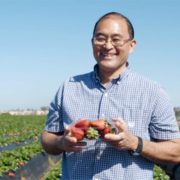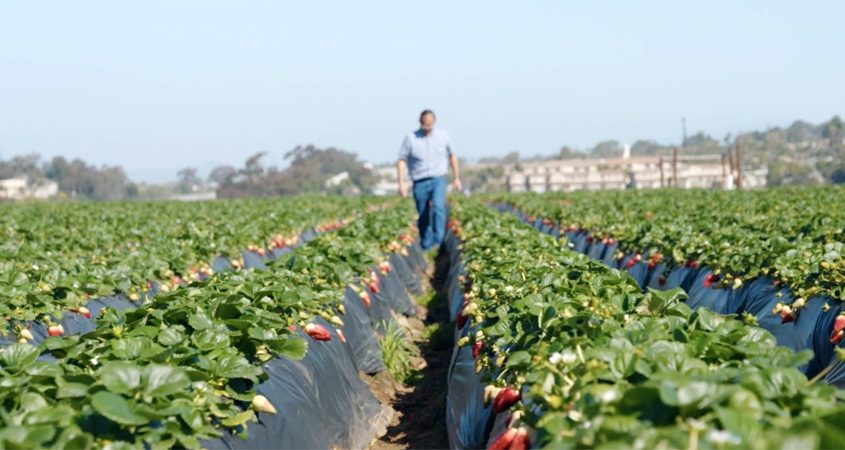Mary Matava Named 2022 San Diego County Farmer of the Year
The San Diego County Farm Bureau named Mary Matava as its 2022 Farmer of the Year. Matava, involved in the region’s agriculture industry for 45 years, was recognized for her achievement at an awards dinner September 7 at the Bernardo Winery in Rancho Bernardo.
The Farmer of the Year award is presented to an active or retired farmer who has had a positive impact on the agriculture industry, is active in the community beyond agriculture, and has represented the agricultural industry publicly on behalf of farming interests.
Matava is a trained agronomist with 40 years of experience and a leading expert in soil assessment and amendments, green waste recycling, facility management, and avocado farming.
Agronomy and recycling
According to the Farm Bureau, Matava’s work involves “assessing the agronomic suitability of Southern California soils.” For the last 25 years, Matava’s company has manufactured organic soil amendments used by farmers throughout Southern California.
Agronomy is the science and technology of producing and using plants by agriculture for food, fuel, fiber, chemicals, recreation, or land conservation, soil management, and crop production.
Matava fights climate change through improved farming technology
Matava has spent much of her career studying local soils to determine what kind of nutrients are present and beneficial for crops while also finding more efficient ways to use water and reduce greenhouse gas emissions. The California Air Resources Board reports 20% of the methane emissions in California come from landfills. The Environmental Protection Agency cites methane from landfills as the third largest overall source of methane in the U.S.
Matava is the owner and operator of Agri Service, based in Oceanside, and employs 30 people. Agri Service operates compost facilities in Southern California, including the El Corazon Compost Facility in Oceanside.
Since 1995, the City of Oceanside has partnered with Agri Service, Inc. to develop an innovative public-private recycling program, reducing its landfill waste while creating beneficial soil amendments, and sharing the most up-to-date industry standards. Since its inception, the compost facility has processed over two million tons of green waste into high-quality soil amendments, mulch, and potting mixes while reducing methane emissions.
Video tour of the El Corazon Compost Facility
Agri Service also operates a compost facility in Otay Mesa, open to the public. Since it opened, Agri Service has processed more than 2.5 million tons of green waste products.
Matava represents the county’s farming professionals
Matava uses her own compost products on her family’s avocado farm in South Morro Hills, where she grows six varieties of avocados.
Her focus for the future is continuing to find ways to mitigate the effects of climate change and pollution, while also producing high-quality farming products. She previously served as president of the San Diego County Farm Bureau and in a variety of roles on the Farm Bureau’s board of directors.
Matava is the second straight Farmer of the Year Winner from Oceanside. Strawberry farmer Neil Nagata, the 2021 Farmer of the Year, is also from Oceanside.
The San Diego County Farm Bureau is a nonprofit organization supporting the more than 5,700 farms within the county. The mission of the Farm Bureau is to foster San Diego agriculture through education, public relations, and public policy advocacy in order to promote the economic viability, sustainability, and community building of agriculture.
(Editor’s note: The City of Oceanside is one of the San Diego County Water Authority’s 24 member agencies that deliver water across the San Diego County region.)







